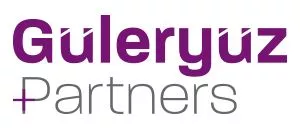- within Corporate/Commercial Law topic(s)
- in United States
- in United States
- within Criminal Law topic(s)
Introduction
The Ministry of Trade of the Republic of Türkiye and the Ministry of Treasury and Finance published the "Communiqué on Keeping Commercial Books Not Related to the Accounting of Enterprises in Electronic Form" in the Official Gazette dated 14 February 2025 and numbered 32813 ["Communiqué"]. The said regulation entered into force on 1 July 2025.
Purpose of the Communiqué
With this regulation, as of July 1, 2025, the share ledger, board of directors' resolution book, board of managers' book, and general assembly meeting and negotiation book can be kept in electronic environment. The name of the system in the electronic environment has been designated as the Electronic Statutory Commercial Books System ["ECLS"].
Fundamental Provisions of the Communiqué
Article 5 of the Communiqué specifies which companies are obliged to keep their commercial books in electronic system.
Accordingly, banks, financial leasing companies, factoring companies, consumer finance and card services companies, asset management companies, insurance companies, holding companies established as joint-stock companies, companies operating currency exchange offices, companies engaged in general retailing, licensed warehousing companies for agricultural products, product specialized exchange companies, independent audit companies, surveillance companies, technology development zone management companies, companies subject to the Capital Markets Law No. 2499 dated July 28, 1981, and companies that establish and operate free zones may optionally keep their ledgers in electronic environment. However, if these companies start keeping their ledgers in electronic environment, they will not be able to revert to keeping their ledgers in physical environment. The examination and presentation of the ledgers will be based on the electronic ledger file downloaded from the System and verified.
For companies registered with the trade registry after 1 January 2026, it shall be mandatory to maintain their statutory books in electronic form. By contrast, companies whose establishment or amendments to their articles of association are subject to the approval of the Ministry are required to comply with this obligation as of 1 September 2025. According to Article 9/1 of the Communiqué, for companies to be registered in the trade registry as of January 1, 2026, while preparing the company establishment contract through MERSIS, the ECLS system user will be designated, or a form regarding the identification of the system user will be submitted to the relevant trade registry office during the establishment procedures. Upon the completion of these stages, the commercial books will be automatically activated on the ECLS at the time of the registration of the company establishment.
In the ECLS, the authority to carry out transactions is strictly limited to registered system users. Such users may either consist of members of the company's governing body or external professionals appointed for this purpose. Each user may be assigned one or more of four distinct authorization categories—recording, viewing, updating, and deleting—and different individuals may be designated for each book. Importantly, even the chairman of the board is unable to access or record the books unless formally registered as a system user. From a corporate governance and oversight perspective, it is considered advisable that at least one board member be assigned as a system user with viewing rights, thereby ensuring effective supervision.
Failure to transition to the ECLS may give rise to a number of sanctions. Books improperly maintained in physical form will be deemed invalid. Consequently, pursuant to the Turkish Commercial Code, both administrative fines and other legal liabilities may be imposed in cases where the statutory obligation to keep commercial books is not fulfilled. In addition, in judicial proceedings, when the submission of books as evidence is required, the lack of validity may cause considerable loss of rights for the company.
Conclusion
The regulations introduced by the Communiqué render the transition to an electronic environment in companies' commercial book-keeping processes mandatory. For newly incorporated companies, this obligation arises automatically upon registration of the establishment. In contrast, for companies whose incorporation or amendments to their articles of association are subject to the approval of the Ministry, the commercial books become active within the ECLS upon the closure certification of physical books and the identification of user information in the system. In this way, the regulation seeks to ensure uniformity in the organization and maintenance of commercial books in electronic form across all companies.
The content of this article is intended to provide a general guide to the subject matter. Specialist advice should be sought about your specific circumstances.
[View Source]

